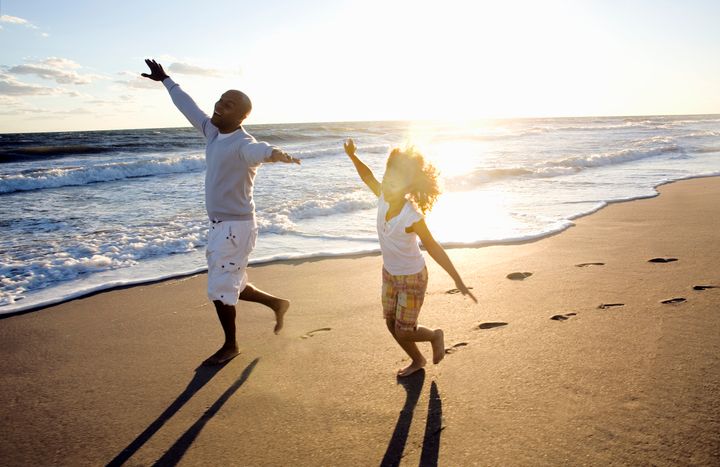5 Tips Sleep Experts Swear By When Traveling
Going on vacation may seem relaxing, but the journey to and from your getaway can make it hard to get enough rest and stick to a healthy sleep schedule.
Traveling, especially entering different time zones, can throw off your circadian rhythm, said Seema Bonney, the founder and medical director of the Anti-Aging & Longevity Center of Philadelphia.
Advertisement
“We all have a circadian rhythm, the natural internal process that regulates the sleep-wake cycle and repeats every 24 hours. When it is thrown off, it can create significant sleeping issues,” Bonney told HuffPost.
Fortunately, the key to achieving some good shut-eye is quite simple. We spoke to sleep experts to find out what techniques they use to get a good sleep while on the go. Here’s what they personally swear by.
Stick to your normal sleep schedule.
If you’re only away for a few days, it’s best to stick to your normal sleep and wake times. That way, your body doesn’t have to adapt to a completely new sleep routine by the time you’re back home.
“When we stick to our own personal sleep-wake cycle, we are promoting consistent and restorative sleep,” Bonney said.
Advertisement
Listen to relaxing music that induces sleep.
Getting rest while traveling is crucial, especially when you’re going long distances. However, whether you’re on the road, taking the train or hopping on a plane, it can be difficult to get some rest with all the background noise.
Po-Chang Hsu, a physician and medical content expert at SleepingOcean, suggested tuning in to some relaxing music like nature sounds or meditation rhythms. Some people prefer ASMR videos, which feature people whispering or using a soft-spoken tone. Calming sounds can help travelers relax, get their mind off their surrounding environment and doze off to sleep.

Gary John Norman via Getty Images
Engage in physical activity.
While you may be making plans to lounge by the pool or take a spa day, Bonney recommended also planning to get some exercise during your trip — which is crucial to good sleep.
“Exercise helps stabilize your mood and helps you to decompress, which is important in allowing the body to transition to sleep,” Bonney said. “Be mindful about exercising too close to bed, as exercise raises your core body temperature and releases endorphins, both of which may affect sleepiness.”
Advertisement
Expose yourself to light often.
If you’re going to be in a different time zone for more than a couple days, light exposure can be key to shifting your body’s natural sleep-wake cycle based on the destination’s time zone.
Hsu suggested that travelers get the maximum daylight exposure in the morning and afternoon. By controlling their light exposure, travelers can change their sleep schedule to their advantage, he said.
Create a comfortable environment in your bed away from home.
Your sleeping environment on vacation is going to be different from the one at home, so try to make things comfortable so you get the best shut-eye possible. This could involve bringing your favorite pillow or perhaps adjusting the temperature of the room just the way you like it when you sleep.

Comments are closed.